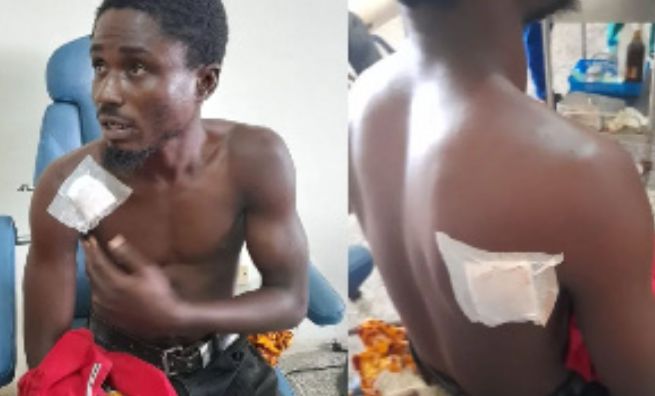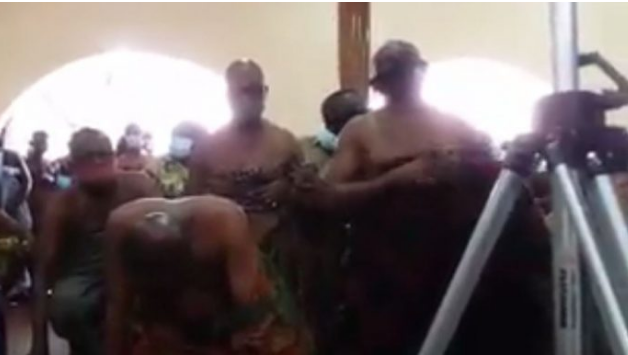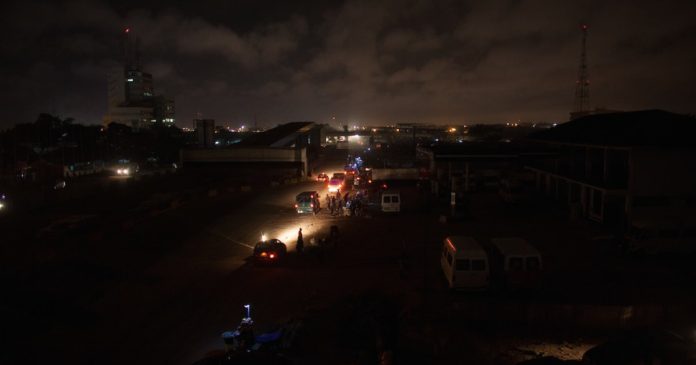Here is the procedure for impeaching a president in Ghana

There have been rising tensions sparked by intents by Minority MPs to initiate impeachment proceedings against President Nana Addo Dankwa Akufo-Addo over a constitutional matter.
The recent move comes after the Executive Secretary to the President, in a letter dated March 18, 2024, asked the Clerk of Parliament to desist from transmitting the anti-LGBT+ Bill to the Jubilee House for assent by the president.
This has been deemed undemocratic and unacceptable by the Minority, reigniting discussions surrounding the powers vested in parliament to hold the executive accountable.
Minority Leader, Dr Cassiel Ato Forson, said on March 21, 2024, that “We stand with the Speaker of Parliament in this. Let the President of Ghana and his government be aware that where this country is going is strange under his watch and the NDC Minority will not countenance it.
“But I want to end that it is obvious that His Excellency the President has breached the constitution and we will advise ourselves. In the coming days, don’t be surprised that we will begin impeachment proceedings against the President.”
As these developments unfold, GhanaWeb delves into what the intricacies of an impeachment process is, as outlined in Article 69 of the 1992 constitution.
Here is the Procedure for Removal of President from Office
(1) The President shall be removed from office if he is found, in accordance with the provisions of this article—
(a) to have acted in willful violation of the oath of allegiance and the presidential oath set out in the Second Schedule to, or in willful violation of any other provision of, this Constitution; or
(b) to have conducted himself in a manner—
(i) which brings or is likely to bring the high office of President into disrepute, ridicule or contempt; or
(ii) prejudicial or inimical to the economy or the security of the State; or
(c) to be incapable of performing the functions of his office by reason of infirmity of body or mind.
(2) For the purposes of the removal from office of the President, a notice in writing—
(a) signed by not less than one-third of all the members of Parliament, and
(b) stating that the conduct or the physical or mental capacity of the President be investigated on any of the grounds specified in clause (1) of this article,
shall be given to the Speaker who shall immediately inform the Chief Justice and deliver the notice to him copied to the President.
(3) The notice referred to in clause (2) of this article shall be accompanied by a statement in writing setting out in detail the facts, supported by the necessary documents, on which it is claimed that the conduct or the physical or mental capacity of the President be investigated for the purposes of his removal from office.
(4) Subject to clause (5) of this article, the Chief Justice shall, by constitutional instrument, immediately convene a tribunal consisting of the Chief Justice as Chairman and the four most senior Justices of the Supreme Court and the tribunal shall inquire, in camera, whether there is a prima facie case for the removal of the President.
(5) Where a notice under clause (2) of this article is delivered to the Chief Justice in respect of the removal from of tile President, on the grounds of physical or mental incapacity Chief Justice shall, in consultation with the professional head of the Ghana Health Services, cause a medical board to be convened which shall consist of not less than four eminent medical specialists and the President shall be informed accordingly.
(6) The President shall be invited to submit himself for examination by the medical board within fourteen days after the appointment of the board.
(7) The President shall be entitled during the proceedings of the tribunal or of the medical board to be heard in his defence by himself or by a lawyer or other expert or person as the case may be, of his own choice.
(8) The Rules of Court Committee shall, by constitutional instrument, make rules for the practice and procedure of the tribunal or of the medical board for the removal of the President.
(9) Where the tribunal or medical board specified in clauses (4) and (5) of this article determines that there is a prima facie case for the removal of the President or that the President is by reason of physical or mental incapacity unable to perform the functions of his office, the findings shall immediately be submitted to the Speaker of Parliament through the Chief Justice and copied to the President.
(10) Parliament shall, with in fourteen days after the date of the findings of the tribunal or medical board, move a resolution whether or not the President shall be removed from office.
(11) The resolution for the removal from office of the President shall be by a secret ballot and shall be taken to be approved by Parliament if supported by the votes of not less than two-thirds of all the members of Parliament after prior debate.
(12) The proceedings of Parliament for the removal of the President shall not be held in camera except where Parliament otherwise orders in the interest of national security.
(13) The President shall cease to hold office as President on the date Parliament decides that he be removed from office.
Source: www.ghanaweb.com





